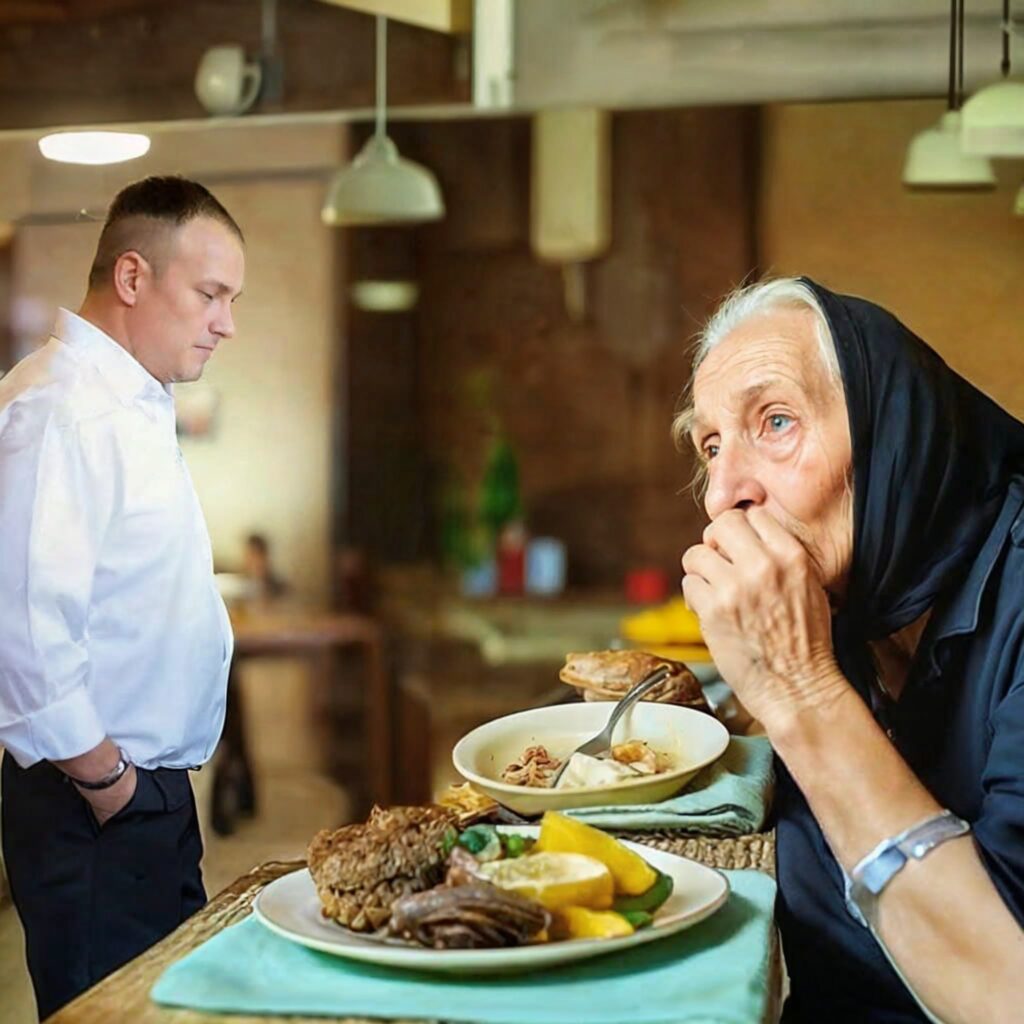
Vyacheslav leaned back in his plush office chair, his lips curling into a satisfied smile. His restaurant, the pride of the city, was flourishing. Known for its elegant ambiance and exquisite cuisine, it had earned accolades far and wide. Reflecting on his journey, Vyacheslav marveled at how far he had come—from the turbulent 1990s, when every decision felt like a gamble, to owning one of the most prestigious establishments in town.
Much of his success, he believed, was due to his late grandfather, Leonid Makarovich. In his old age, Leonid had sold the family’s cherished dacha to give his grandson the funds to pursue his dream. “You’ve got a spark for business,” he’d said, handing Vyacheslav the money. That investment became the seed for Vyacheslav’s first venture—a small snack bar at the local market. From there, the business grew: a café at the train station, a modest bistro, and finally, this grand restaurant.
As he sat reminiscing, his thoughts were interrupted by muffled voices outside his office. He opened the door to find two waitresses discussing a problem. “She’s back,” one of them muttered, annoyance evident in her tone.
Vyacheslav frowned. “Who’s back?”
“The old woman,” replied Vera, one of his most senior staff. “She’s standing by the window again, staring at the guests. It’s unsettling for everyone.”
Vyacheslav walked to the window and saw her—a frail, disheveled woman in tattered clothes, her gray hair tangled and unkempt. She stood outside, peering through the glass at the diners enjoying their meals. Her eyes, sunken but sharp, were fixed on the plates of steaming food. Vyacheslav felt a flash of irritation.
He turned to Vera. “Where’s the security guard? Why hasn’t he taken care of this?”
Maria, another waitress, chimed in. “He did, but she keeps coming back. She doesn’t cause trouble, but… she makes the guests uncomfortable.”

Vyacheslav sighed. The last thing he wanted was for his high-end restaurant to be associated with a homeless woman loitering outside. He instructed the staff to call the police to remove her discreetly. When the officers arrived, they escorted her away without a scene.
As Vyacheslav watched her leave, he felt a fleeting pang of unease. Something about her reminded him of his grandmother, Anna, who had raised him after his parents’ deaths. His mother had vanished from his life when he was just a child, and though his grandparents had tried to shield him from the truth, whispers of her tragic fate had haunted him for years.
Vyacheslav shook off the thought and returned to work. But the image of the old woman lingered in his mind, and when he overheard that one of the new cleaners, Anya, had been secretly feeding her, his irritation resurfaced.
Later that day, Vyacheslav caught Anya near the service entrance, sharing a plate of food with the same homeless woman. “What’s going on here?” he demanded, his voice sharp.
Anya flinched. “I’m sorry, sir,” she stammered. “I just… I felt bad for her. She looked so hungry.”
Vyacheslav’s temper flared. “Do you understand what kind of clientele we serve here? One act of carelessness could ruin the reputation I’ve built over decades!”
The old woman, sensing the tension, interjected. “Please, sir, don’t blame the girl. She was just being kind.”
Vyacheslav turned to her, his face cold. “Kindness won’t pay the bills or keep my restaurant running. Finish your food and don’t come back.”
The woman stood, trembling slightly, and picked up the bread she had been eating. “Thank you for this,” she murmured to Anya. “Any trouble can be survived with bread.”The words hit Vyacheslav like a thunderbolt. His chest tightened as memories from his childhood flooded back—his mother, kneeling beside him after a fall, handing him a piece of fresh bread and whispering those very words: “Any trouble can be survived with bread.”
“Wait,” Vyacheslav called out, his voice cracking. “Where did you hear that saying?”
The old woman paused, turning to him with a puzzled expression. “It’s something my mother used to say. Why?”
“What’s your name?” he asked, his voice barely audible.
“Lyubov Vasilyevna,” she replied.
Vyacheslav’s heart raced. The name struck a deep chord, stirring memories he thought he had long buried. “Please… come inside,” he said, his tone softening.
Anya and the old woman exchanged confused glances but followed him into the restaurant. Vyacheslav led them to his office and gestured for Lyubov to sit. His mind reeled as he asked her questions about her past—her family, her life. With each answer, his suspicions grew stronger.
She recounted a life marked by hardship: the loss of her husband, a wrongful imprisonment, and the forced separation from her son, Slavochka. “They took him from me,” she said, her voice breaking. “I searched for years, but it was as if he’d vanished. I prayed he’d forgive me, but I never stopped hoping to see him again.”
Vyacheslav felt the air leave his lungs. “I’m Slavochka,” he whispered.
Lyubov’s eyes widened, her hand flying to her mouth. “No… it can’t be,” she said, tears streaming down her face. “My Slavochka?”
He nodded, his own tears spilling over. “I thought you were gone. They told me you were dead.”
Mother and son embraced, their tears mingling as years of pain and longing melted away. Vyacheslav vowed to never lose her again. He arranged for her to receive the best medical care, ensuring her health improved, and brought her into his home.
His wife and children welcomed Lyubov warmly, delighted to finally meet the grandmother they never knew they had. The family grew closer, and Lyubov, despite her age, found new joy in her son’s love and the laughter of her grandchildren.
For Vyacheslav, the reunion was a reminder of what truly mattered. His restaurant might have brought him success, but it was the rediscovery of his mother that gave his life meaning. Lyubov Vasilyevna, once lost, was now at the heart of their family—a testament to the enduring power of love and the possibility of redemption.





